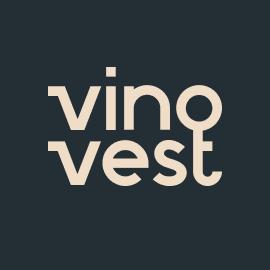Invest in wine and whiskey
Invest in single-family homes
Investments
$56,000
The minimum investment on Doorvest is a 25% down payment on a home, averaging $56,250 based on the average home price of $225,000.
Moderate Risk
3/5
Investing with Vinovest involves market fluctuation risks, potential loss from early sale fees, limited insurance coverage, and no guarantee of liquidity or fair value realization on the secondary market.
Moderate Risk
3/5
Investing with Doorvest involves risks such as market volatility, economic changes, and property-specific issues. While the platform aims to manage these effectively, outcomes can be uncertain, and investors should carefully consider their risk tolerance and conduct due diligence before investing.
Moderate Liquidity
2/5
Vinovest permits selling of assets with no extra commissions but charges a 1.5% listing fee for sales made before the ideal time window. Liquidity is not guaranteed and depends on market demand.
Minimum Liquidity
1/5
Doorvest allows investors to sell their homes back to the platform, requiring them to connect with a client partner for more information on the process.
Receive new reviews from Fintorial
Moderate Return
8.9-13.8 %
Between 2015 and 2022, whiskey and fine wine have historically generated annual returns of 13.8% and 8.9%, respectively.
High Return
18 %
Doorvest reports an average annual investment return of 18%, accounting for rental income, property appreciation, and mortgage leveraging.
Long-term Investment
5-10 years
Vinovest offers three time horizons for wine investment: short-term (5-7 years), medium-term (7-10 years), and long-term (10+ years), with customization options for higher-tier clients.
Long-term Investment
5-30 years
Doorvest focuses on long-term investments in single-family rentals, generally suggesting a commitment of several years to decades, based on real estate appreciation and rental income.
Who can invest
International
Vinovest is open to investors who can meet the platform's minimum investment thresholds, catering to a wide audience from beginners to seasoned collectors and various entities.
Who can invest
United States
To invest with Doorvest, you need to be in the U.S. or able to sign documents at a U.S. Embassy.
Moderate Volatility
3/5
Vinovest's assets, like wine and whiskey, can face market volatility with swift price changes, posing risks of financial loss for short-term investors.
Moderate Volatility
3/5
Real estate assets on Doorvest can experience volatility due to economic shifts, interest rate changes, and local market trends, potentially affecting investment values and posing risks for short-term investors.
Regulation and audits
Audited
Vinovest is audited annually by insurers and an independent auditor but is not SEC-regulated as it does not deal in securities.
Regulation and audits
TREC Regulated
Doorvest complies with the Texas Real Estate Commission (TREC) consumer protection notice, indicating adherence to state-level real estate transaction standards. It does not provide details on broader financial regulations or audits, focusing more on real estate industry compliance than securities regulation.
Insurance
Yes
Vinovest insures client assets against damage, with reimbursement at full market value, although not all loss scenarios may be covered.
Insurance
Yes
Doorvest protects rental investments with homeowner's insurance, covering physical structure damage and potentially extending to personal belongings and medical expenses. This coverage is a mortgage lender requirement, safeguarding against various damages, though investors should be aware of any coverage limitations.
Payouts
Rental Income
Doorvest offers rental income as returns to investors, bolstered by a Rent Guarantee that includes vacancy and non-payment protection for the first three months, with an option to extend up to 12 months. Additionally, a Renovation Guarantee covers repair costs for the first year of ownership.
Withdrawals
Investors get money back from Vinovest after selling matured or scarce wines, generally within a 10 to 15-year timeframe.
Withdrawals
To get their money back, Doorvest investors need to sell their property, with the timeline depending on market conditions and the sale process. The process is initiated through Doorvest, and funds are received after the property is sold and the transaction is completed.
Extra Fees
Yes
Vinovest charges tiered management fees: 2.5% (Standard), 2.35% (Plus), 2.15% (Premier), and 1.90% (Grand Cru), applied only on invested capital. A 1.5% selling fee is incurred upon sale, with free listing.
Extra Fees
Yes
Doorvest employs a fee model, deriving revenue from a portion of the monthly rental income and margins on home sales, always at fair market value.
Taxes
Annual Statement
Wine gains taxation through Vinovest depends on location: taxed as collectibles in the U.S., often exempt in the U.K., with similar exemptions in other countries. Vinovest provides monthly and annual statements for tax reporting, not 1099 forms.
Taxes
Tax Form
Doorvest facilitates tax compliance by providing investors with all necessary documentation for tax filing, related to real estate investment income and expenses.

